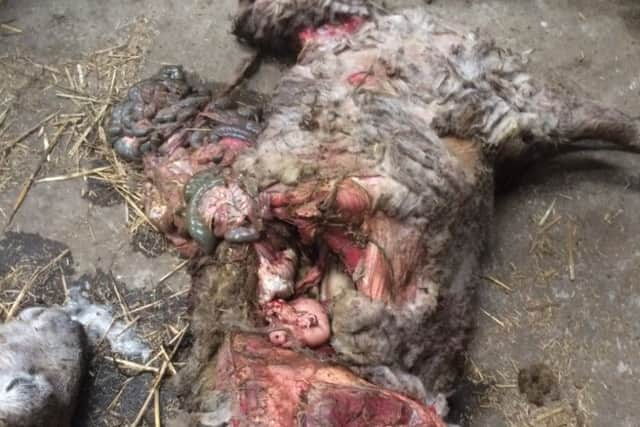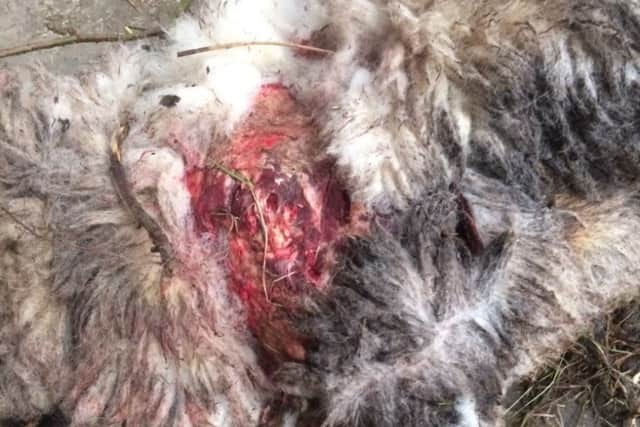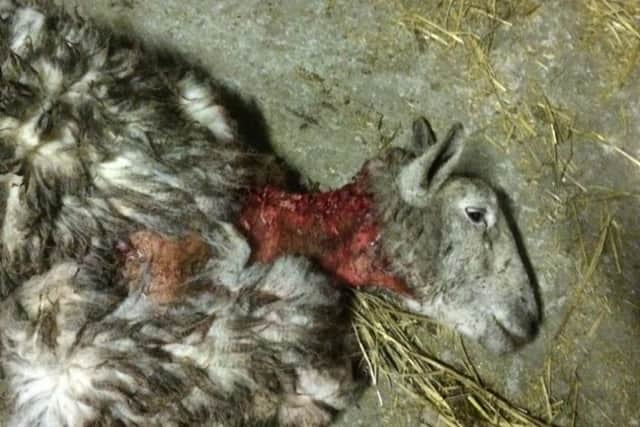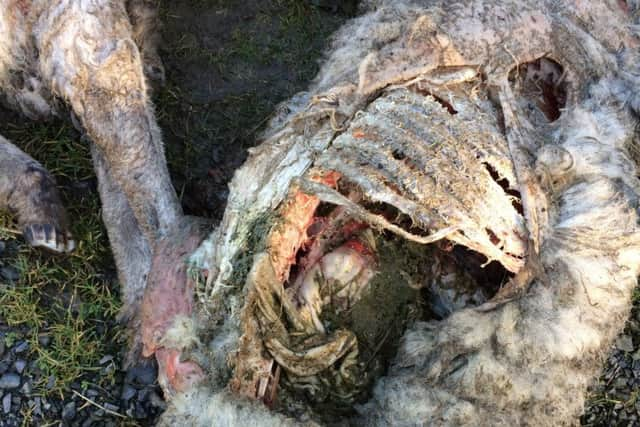Dogs attack sheep in Co Down


Philip Robb, who runs around 100 Leicester Cheviot ewes with his father on ground near Slieve Croob, discovered the animals last Wednesday night (February 14).
What should have been a routine task of checking sheep turned into something Philip said he’d never forget.
Advertisement
Hide AdAdvertisement
Hide AdHe explained: “I had come home from work and was going to look the sheep and noticed that they were all over the place. I looked down into one of the fields and saw a trail of wool. I followed it and found two ewes. They had been ripped to pieces. They were living, but only just. The injuries were terrible.


“I called my dad and we counted the ewes and soon found we were missing another three. We had a look around the fields and found three lying in a sheugh at the side of a silage field. It looked like they had been run into the sheugh and then the dogs had eaten through them.
“We were still a ewe short, but we had to start gathering up the ewes we had found. Two were dead and the vet was called to put the other three down - they were in really bad shape. The vet said she had never seen anything like it,” he added.
For Philip and his father the grim discoveries didn’t end there.
Advertisement
Hide AdAdvertisement
Hide AdPhilip continued: “The next morning we were working with the sheep when we eventually found the sixth ewe. It was further down the field in the sheugh and had been eaten right through by the dogs. They had eaten the lamb out of the ewe and chewed through her ribs.


“Now, I have seen sheep attacked by dogs before but I have never seen anything like this,” added Philip.
Dealing with a situation like this is difficult for any farmer. The Robb’s followed the standard advice and raised the matter with the authorities.
Philip continued: “We contacted the police as soon as we discovered the first injured ewes and we were told a car would be sent out. However the police later called back and said they wouldn’t attend as the matter was really one for the dog warden.
Advertisement
Hide AdAdvertisement
Hide Ad“That was OK. We got an out of hours number for the dog warden but there was no response. I called the warden at 9am on the Thursday morning but he couldn’t come out until the Friday. When he did come we showed him the ewes and showed him where we found them.


“We knew the dogs responsible and gave what details we had to the warden. It will be up to him now to take the necessary action.”
For Philip and his father the situation is very much compounded by the timing of the attack. The ewes were in lamb and while the loss of six ewes initially is a big loss they have been warned that there could be further losses.
“The whole situation was awful,” said Philip. “We had to go round our fields in the pouring rain and pull the dead ewes out of the sheugh. We had to get the vet to destroy the three that were barely alive.
Advertisement
Hide AdAdvertisement
Hide Ad“The ewes had been through a terrible time. They had been run into the ground and then ripped to pieces.


“We have been watching the rest of the sheep carefully because the vet has warned us that the other ewes have been stressed and could abort their lambs.
“In terms of looking at the full cost of this attack we won’t know for a month. We are due to be lambing around St Patrick’s Day (March 17) and that’s when we’ll really find out the damage that has been done.”
Philip added: “The whole thing is very frustrating. Farmers work hard to keep sheep in good condition - it’s not easy. It takes money for feed and vaccinations. This just adds to the difficulty of the situation.”
Advertisement
Hide AdAdvertisement
Hide AdThe incident on the Robb’s land came just days after leading rural insurer NFU Mutual has warned farmers to watch out for livestock worrying as the cost of claims has reached a record level.
New figures show that the cost of dog attacks on livestock reported to NFU Mutual across the UK rose by 67 per cent in the past two years. The total cost to the industry in 2017 is estimated at £1.6m.
For Northern Ireland the figure has increased from £13,000 in 2015 to £16,000 in 2017.